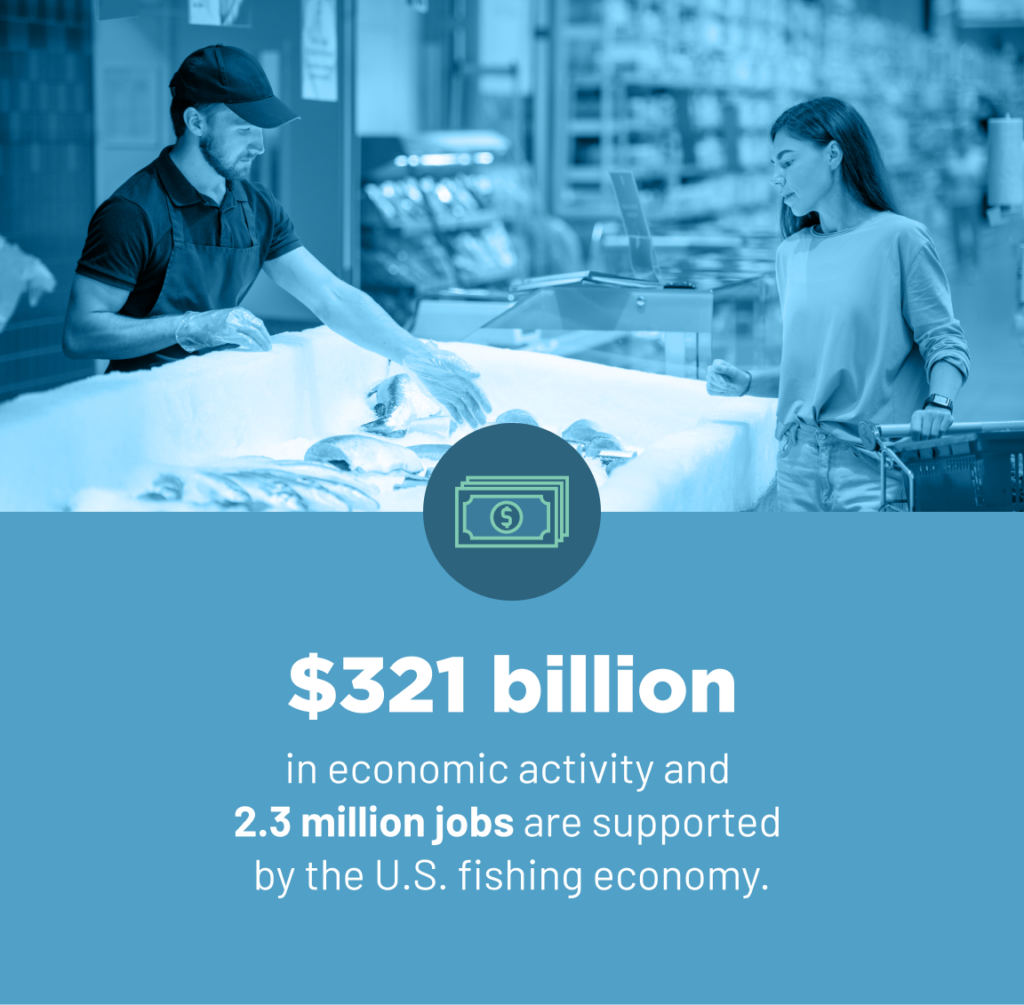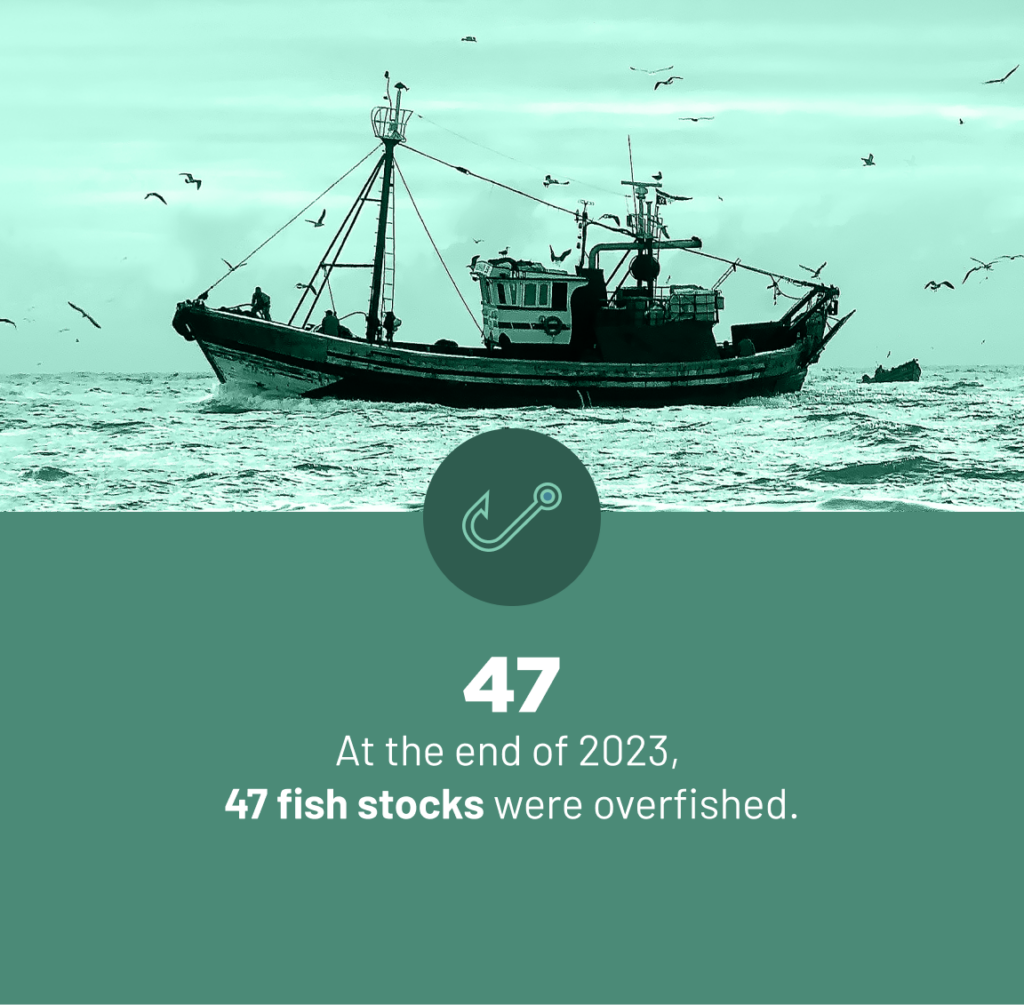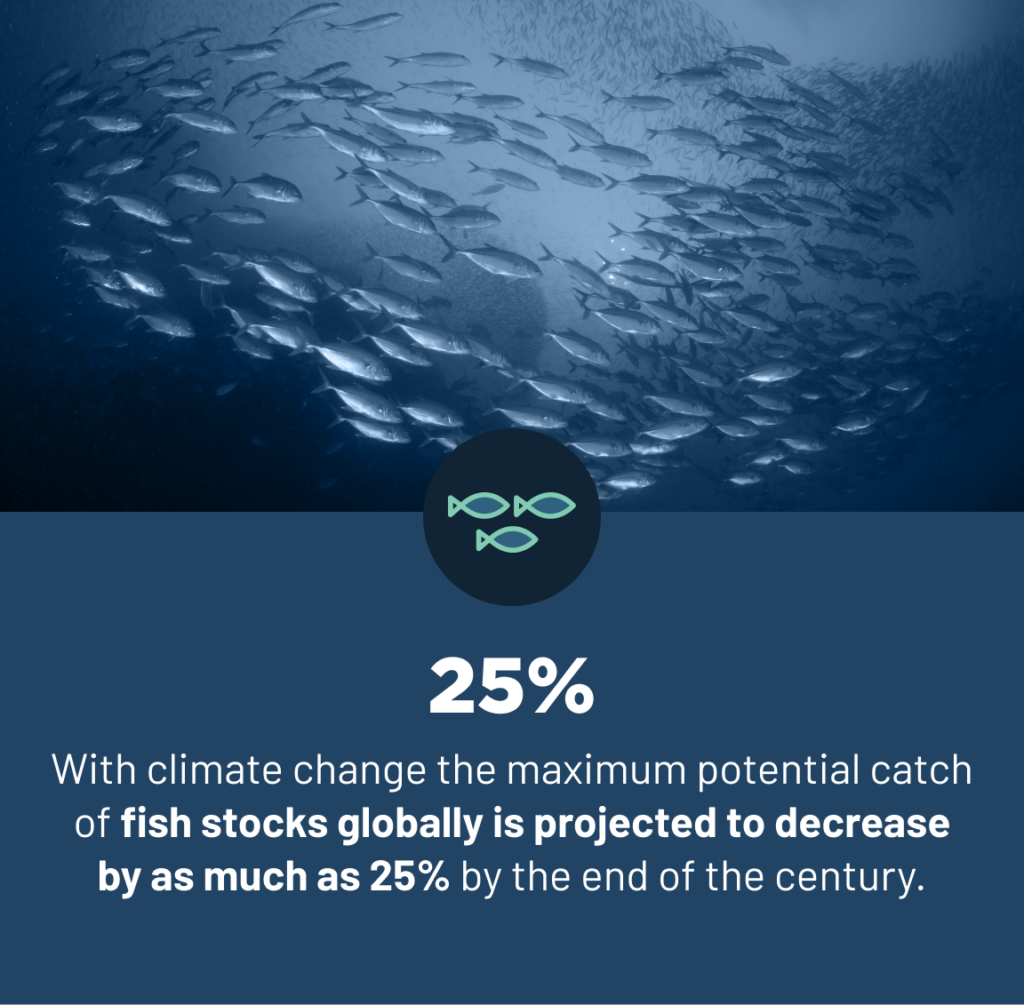Moving Our Fisheries Forward
We need strong fisheries management to support coastal economies, boost fish resilience, and improve the health of the ocean.
Fish are the foundation of vibrant coastal economies and a healthy ocean.
But they face an uncertain future.



The Magnuson-Stevens Fishery Conservation and Management Act (MSA) is the nation’s bedrock law that governs fishing in U.S. ocean waters. Considered to be among the most effective fishery management laws in the world, it is a critical tool that has helped build sustainable marine fisheries that underpin healthy ocean environments and vibrant coastal communities in the U.S.
First passed in 1976 and improved over time, the MSA has been used by several presidents to prevent overfishing, protect healthy habitats, and bring fish populations back from the brink. When Congress reauthorized the law in 1996 and 2006, lawmakers empowered managers to use the latest science to set annual catch limits that maintain healthy fish populations and rebound overfished species. This sustained progress has contributed to healthier fisheries and ocean environments that power coastal economies.
But today, there have never been more clear and apparent threats to abundance and productivity of U.S. fisheries. At the same time, climate change is driving unprecedented shifts in ocean ecosystems, fish populations, and coastal economies — demanding bold, adaptive policy solutions.
We must stand up for strong science-based management that keeps coastal economies healthy, protects fisheries for future generations, and supports the health of the ocean as a whole.